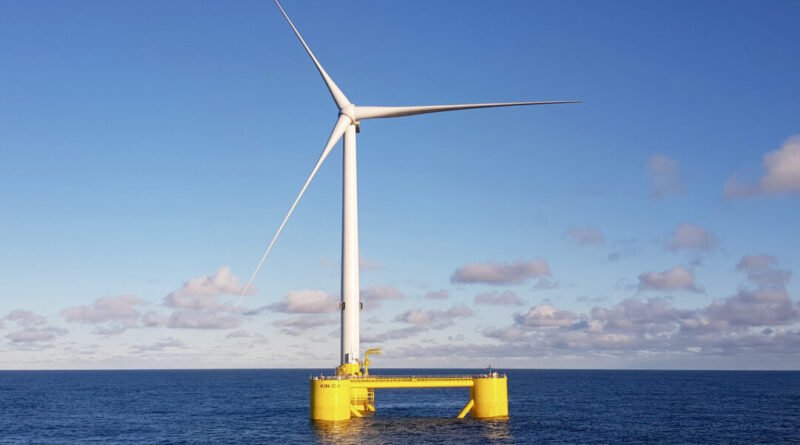Expansion of Wind Farms on 6,500 Miles of Crown-Owned Coastline Proposed in Labour Bill
The law will also grant the Crown Estate the authority to borrow from the Exchequer for investments in net zero projects for the first time.
Labour’s green bill aims to boost wind farm expansion significantly by utilizing 6,500 miles of Crown-owned coastline seabed rights.
The proposed Crown Estate Bill, announced in the King’s Speech on Wednesday, will eliminate “outdated restrictions” on the Crown Estate’s activities. This national landowner owns virtually all the seabed around the UK out to 12 nautical miles.
Labour also intends to broaden the Crown Estate’s investment powers, allowing it to borrow and invest more quickly towards its net zero goals.
The Crown Estate’s £16 billion portfolio is not owned by the government or the monarch personally. It is held by the Crown as an institution, with no direct control or management by the reigning monarch King Charles III. All net revenue profits go to the Treasury, with some allocated to the Royal family.
Granting the Crown Estate borrowing powers will enable it to advance 20-30 gigawatts of new offshore wind seabed leases by 2030 off England and Wales’s 6,500 miles of coastline.
‘Invested in New Projects’
Last year, it generated a record net revenue profit of nearly half a billion pounds from the six offshore wind farms it leased.
Currently, the Crown Estate cannot utilize its sizeable cash reserves for investments due to the need to safeguard against potential financial losses.
Labour states that allowing the Crown Estate to borrow from the Exchequer will unlock these reserves for new projects.
This is especially important for accelerating offshore wind deployment,” it noted.
The Crown Estate traces back to 1760 when George III relinquished management of Crown Lands to Parliament for a fixed annual payment. Income from its portfolio has been returned to the Treasury since the Crown Estate Act 1961 for the nation’s financial benefit.
Clean Energy Superpower
The bill is part of Labour’s vision to transform the UK into a “clean energy superpower,” including laws to establish “Great British Energy,” a publicly-owned energy generation company managing clean power projects nationwide.
A separate bill aims to initiate a national wealth fund to attract private sector investments in industries such as green steel and decarbonisation.
Professor Gordon Hughes, a former World Bank adviser, recently criticized the plans as industrial subsidies, particularly for green activities, stating that this is not the objective of the Labour government.
“It’s nothing more than a form of industrial subsidies, in this case, for green activities,” he said, pointing out the economic challenges of some of these industries like green steel.
“Green steelmaking is never going to cover its costs,” he added.




